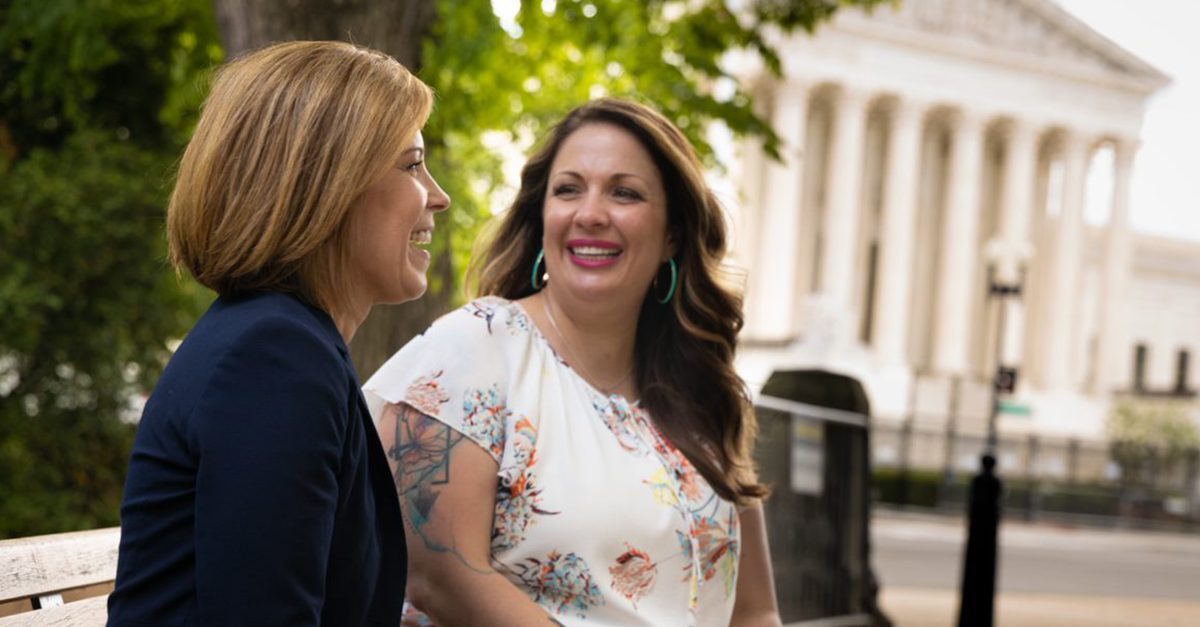


Get a free copy of Parental Rights & Education when you subscribe to our newsletter!

“The U.S. Constitution ensures Lorie Smith, Chelsey Nelson, Emilee Carpenter—and indeed, every American—can speak consistent with her convictions. Now we urge the 6th Circuit and 2nd Circuit to uphold this freedom and follow Supreme Court precedent so that Chelsey and Emilee can speak freely without being threatened by the government with steep fines and penalties.”
–BRYAN NEIHART, ALLIANCE DEFENDING FREEDOM
In the wake of the Supreme Court’s decision in 303 Creative v. Elenis, Alliance Defending Freedom (ADF) has filed briefs in two U.S. Courts of Appeals urging that their clients be protected from state and local laws requiring them to express messages they disagree with.
ADF’s briefs were filed last week and state that 303 Creative resolves their two cases. The first brief, filed Thursday with the 6th Circuit Court of Appeals, is the case of Chelsey Nelson. Nelson is a Christian photographer who filed suit in 2019 against the City of Louisville, Kentucky, due to its Fairness Ordinance, which would have required her to photograph same-sex weddings and create blog posts celebrating them.
In August 2022, U.S. District Court Judge Benjamin Beaton granted an injunction to Nelson, which prohibited Louisville from enforcing its ordinance against Nelson. “The City treats the equal status of same-sex marriages as fixed. As a matter of law, it is,” he explained. “But today’s dispute concerns whether the government may conform speech to that development. Under the First Amendment, it may not. The freedom of speech—especially for minority views—is a core premise of our democratic republic.”
Louisville appealed Beaton’s ruling, and the case awaits decision by the 6th Circuit. In the time since, the Supreme Court handed down its ruling in 303 Creative, a case which the City of Louisville has stated is “nearly identical” to Nelson’s. In 303 Creative the Supreme Court ruled that the state of Colorado could not force web designer Lorie Smith to make websites for gay weddings nor bar her from posting a message on her website that she only creates sites for heterosexual weddings. Because of the similarities in the cases, ADF argues Nelson’s case is resolved, writing,
“The Supreme Court’s decision in 303 Creative proves the district court correctly granted Nelson injunctive and declaratory relief and upheld the First Amendment’s promise,” wrote ADF. “‘The First Amendment envisions the United States as a rich and complex place where all persons are free to think and speak as they wish, not as the government demands.’ Smith, Nelson, the ‘Muslim movie director,’ the ‘atheist muralist,’ the LGBT photographer, and many others of all views benefit from this protection. This Court should affirm, consider the supplemental materials, facially enjoin the Unwelcome Clause, and reinstate Nelson’s damages.”
Last Friday ADF filed a brief at the 2nd Circuit Court of Appeals on behalf of Emilee Carpenter, also a photographer, after a district court ruled that the state of New York and a local district attorney could force Carpenter to create messages and blog posts that violate her religious beliefs. New York’s statute threatens to revoke her business license, fine her up to $100,000, and put her in jail for up to a year for violating the law.
ADF argues that as in Nelson’s case, both the district court and the state of New York recognized the similarities between Carpenter’s case and 303 Creative. ADF argued, “The district court relied on the Tenth Circuit’s now-reversed 303 Creative opinion throughout its order. New York and the County claimed that 303 Creative and Emilee’s case present largely identical issues.’ They’re correct: those similarities resolve her case.”
ADF legal counsel Bryan Neihart released a statement which said:
“Free speech is for everyone. As the Supreme Court recently reaffirmed in 303 Creative, the government can’t force Americans to say things they don’t believe…The U.S. Constitution ensures Lorie Smith, Chelsey Nelson, Emilee Carpenter—and indeed, every American—can speak consistent with her convictions. Now we urge the 6th Circuit and 2nd Circuit to uphold this freedom and follow Supreme Court precedent so that Chelsey and Emilee can speak freely without being threatened by the government with steep fines and penalties.”

When Beaton ruled in Nelson’s favor, the Freedom Center wrote a Takeaway criticizing the Supreme Court’s weak ruling in Masterpiece Cakeshop v. Colorado Civil Rights Commission that allowed artists to be compelled to express messages they opposed, including baker Jack Phillips. Beaton reflected on that decision, stating, “…the Supreme Court approached the question, but didn’t make it all the way down the aisle” and “didn’t resolve the underlying constitutional question regarding the tension between the First Amendment and Colorado’s public-accommodations law.”
As we noted, the Court had an opportunity to right its wrong in 303 Creative and now it has done just that. These two cases for Nelson and Carpenter should be quickly dismissed and both photographers free to pursue their craft and their conscience. That is, if courts follow the Supreme Court’s precedent.
Beaton quoted West Virginia State Board of Education v. Barnette in his decision for Nelson, writing, “If there is any fixed star in our constitutional constellation, no official, high or petty, can prescribe what shall be orthodox in politics, nationalism, religion, or other matters of opinion or force citizens to confess by word or act their faith therein.”
He then continued, “The Supreme Court has continued to navigate by that star through changing currents of speech and conscience. And lower courts are bound to follow. Because the U.S. Constitution supersedes Louisville’s Fairness Ordinance as a matter of law, this Court enjoins the City from either compelling or suppressing Nelson’s photography and writing.”
That was true when he wrote it and it is true still. Now that the Supreme Court has clearly articulated the rights of artists, only an openly defiant court would rule against Nelson and Carpenter. If the 2nd and 6th Circuit Courts rule as expected, it will show the future that the Supreme Court has created with 303 Creative — a future where everyone is free to speak (and not speak) their beliefs.
Ready to dive deeper into the intersection of faith and policy? Head over to our Theology of Politics series page where we’ve published several long-form pieces that will help Christians navigate where their faith should direct them on political issues.
Christian conservative news and issues that matter. Curated just for you!
